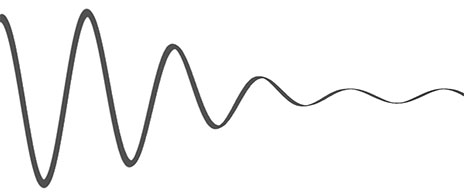Cravings are a natural part of changing alcohol or other drug use. This means that you won’t have any more difficulty changing your substance use than anybody else does. Understanding cravings helps people to tolerate and overcome them, so let’s go through some simple facts.
Cravings are the result of long-term alcohol or other drug use and can continue long after your use has stopped. So, people with a heavier history of use will experience stronger urges.
Cravings and impulses can be triggered by: people, places, things, feelings, situations or anything else that has been associated with alcohol or substance use.
A craving is just like a wave at the beach. Every wave in a set starts off small, and builds up to its highest point, and then it breaks and flows away to shore. Each individual wave never lasts more than a few minutes. An impulse is just the same - it starts off small, and then builds up – with physical parts, behaviours and thoughts. But, it reaches its peak, just like a wave, and it will eventually break, and disappear. This intense part of the process usually doesn’t last more than 10 minutes.
Cravings can lose their power if you don’t add force to them by acting on the thought. Even if you drink or use drugs only once in a while, you will still keep those cravings alive. Cravings are like a stray cat – if you keep feeding them, they will keep coming back. Quitting alcohol or drugs totally, is the best and quickest way to get rid of cravings.
Like the picture below, each time a person does something other than drink alcohol when they have a craving to do so, the craving will lose its power. The peak or intensity of the craving wave will become smaller, and the waves will become further apart.

Cravings are strongest in the early parts of cutting down this behaviour, but people may continue to experience cravings for the first few months and sometimes even years after their alcohol or substance use has ceased.
Each craving/impulse will not always be less intense than the previous one. Be aware that sometimes, particularly in response to stress and certain triggers, the peak will return to the maximum.
(Adapted from Marlatt & Gordon, 1985)